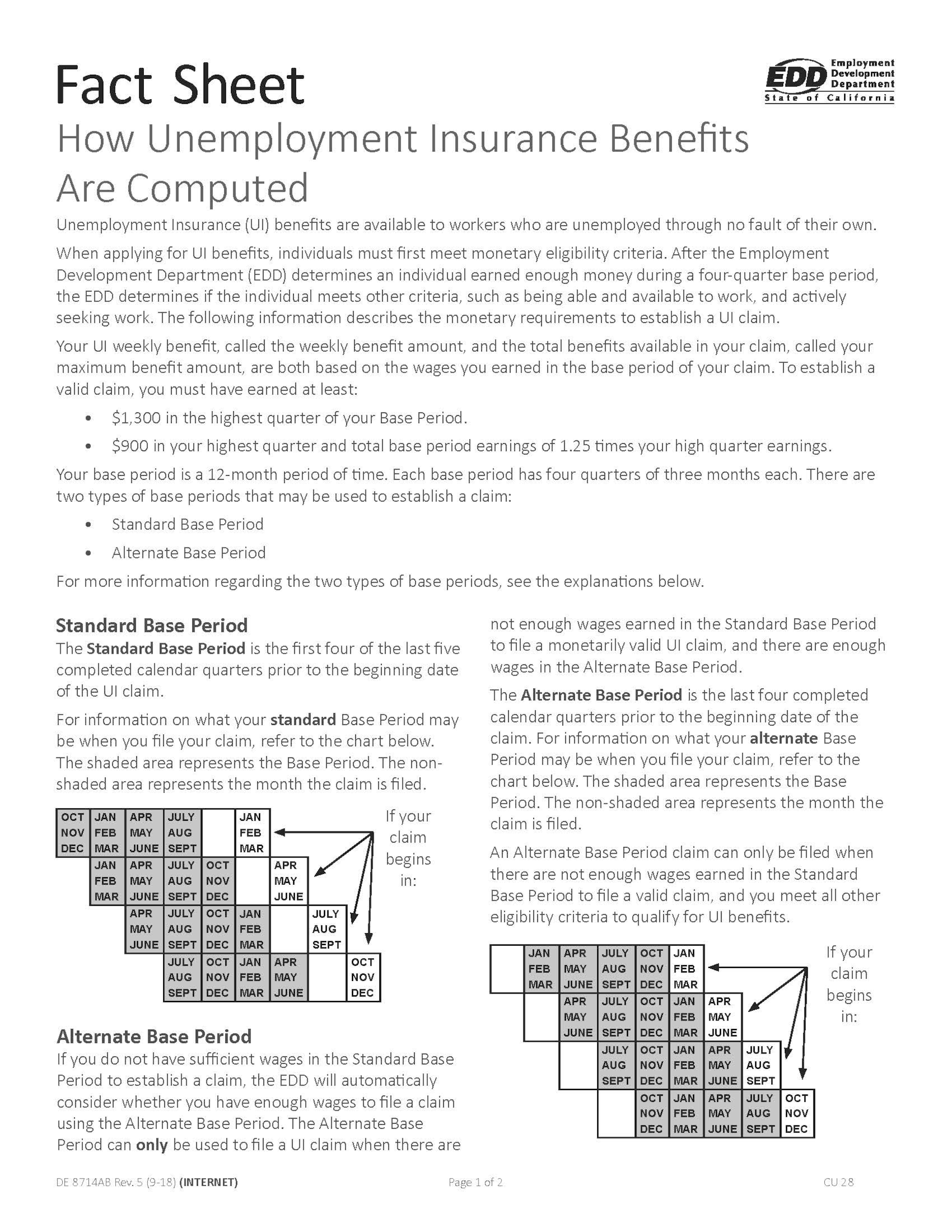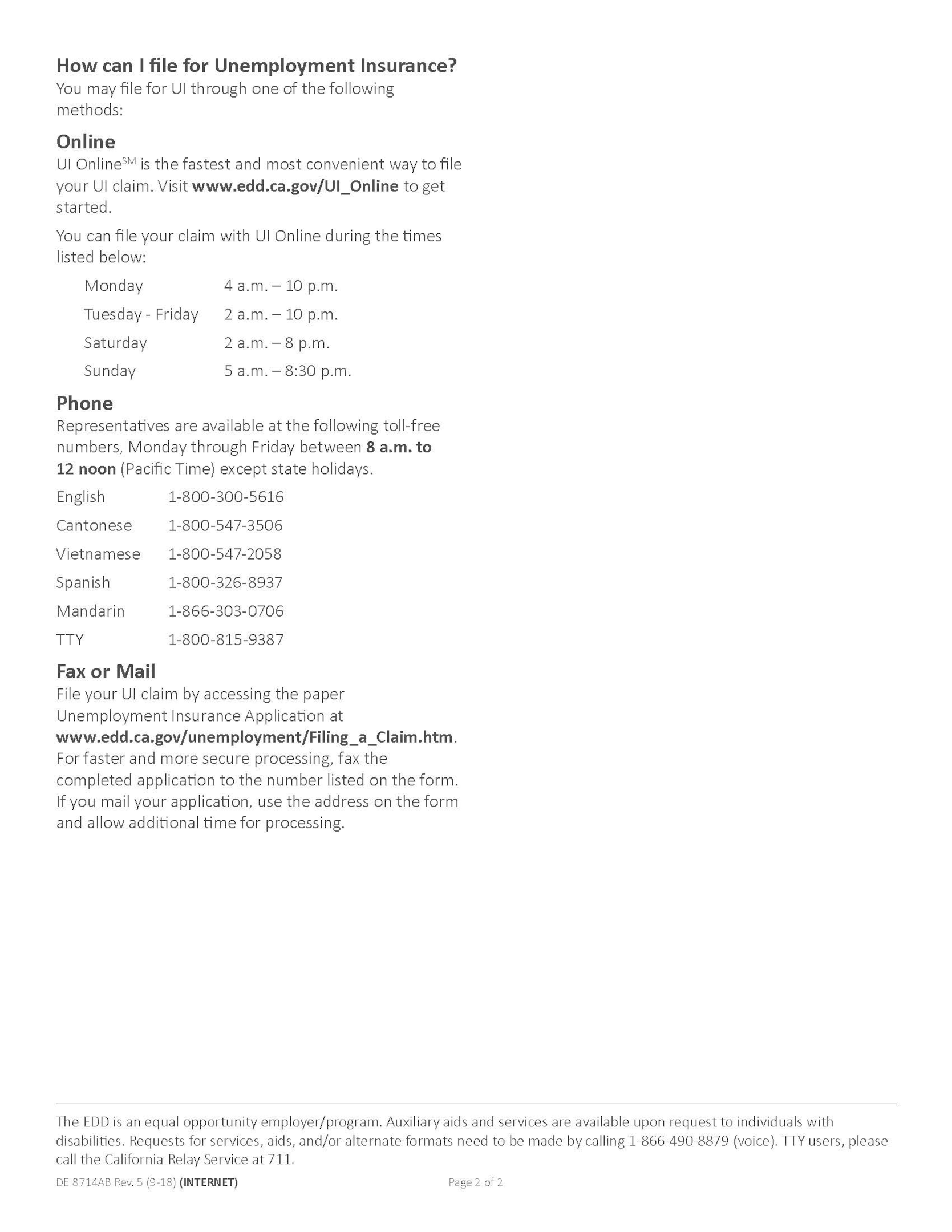
If you quit your job voluntarily, without good cause, you will not be eligible for unemployment benefits in California. However, if you are forced out or have good cause to quit, you may still be eligible for benefits, depending on the circumstances.
Each state sets its own eligibility standards for unemployment, including what constitutes "good cause" to quit. California defines good cause as: "An employee who quits for a substantial and compelling reason, whether work-related or personal, may be eligible for California unemployment benefits."
In California, good cause to quit exists when a substantial motivating factor in the employee's decision to quit was a real, and compelling reason (work-related or personal), which would cause a reasonable person who genuinely desired to continue working to leave the job under the same circumstances.
Whether an employee has good cause to voluntarily quit under this definition is determined on a case-by-case basis. Here are some reasons for quitting that California courts have found constitute good cause:
You can potentially receive unemployment in California if you have quit your job. However, the Employment Development Department criteria set out some conditions that must be met to obtain these benefits.
In California—as in every other state—employees who are temporarily out of work through no fault of their own may qualify to collect unemployment benefits. The eligibility rules, prior earnings requirements, benefit amounts, and other details vary from state to state, however.
Here are the basic rules for collecting unemployment insurance in California. In California, the agency that handles unemployment benefits is called the Employment Development Department (EDD).
You must meet three eligibility requirements to collect unemployment benefits in California:
Virtually all states look at your recent work history and earnings during a one-year base period to determine your eligibility for unemployment. In California, the base period is usually the earliest four of the five complete calendar quarters before you filed your claim for benefits. For example, if you file your claim in July 2020, the base period would be from April 1, 2019, through March 31, 2020. However, if you didn't earn enough during the regular base period, the EDD will use the most recent four quarters as an alternate base period.
During the base period, you must have earned at least:


You must be out of work through no fault of your own to qualify for unemployment benefits.
If you are laid off, lose your job in a reduction-in-force (RIF), or get "downsized" for economic reasons, you will meet this requirement.
If you are fired because you lacked the skills to perform the job or simply weren't a good fit, you might be able to collect benefits. If you are fired for misconduct, however, you will generally not be eligible for unemployment benefits. In California, misconduct makes you ineligible for unemployment insurance only if all four of these statements are true:
If you had good cause related to leaving your job (such as illegal discrimination, harassment, unsafe working conditions, or fraud by your employer), you could be eligible for unemployment benefits. In this situation, you must have taken reasonable steps to resolve the situation before quitting, which means you must have discussed the problem with your employer and allowed a reasonable amount of time for the employer to fix the situation before you left the job.
In most cases, an employee who wants to collect unemployment after quitting must show that he or she took steps to try to resolve the problem and preserve the relationship prior to leaving the job.
For a workplace problem, such as dangerous working conditions, the employee must bring the problem to the employer's attention and give the employer an opportunity to fix it.
For a personal problem, such as a need to care for an ill family member, the employee should explore other ways to meet the family member's needs, such as taking a leave of absence or working a reduced schedule.
Generally, an employee will be eligible for benefits only if steps to resolve the problem short of quitting are not successful.
If you've been denied unemployment benefits in California after you quit voluntarily, you may require professional help from a law firm. For more specific information related to the end of your employment relationship, visit our website.
Our clients become friends, confidants, and repeat customers. Former clients are our best referral source.
Do not be a commodity, find an attorney who treats your legal issue with the care it deserves.

